Photos: 4H Goat Show at the Genesee County Fair

Photos by Debra Reilly
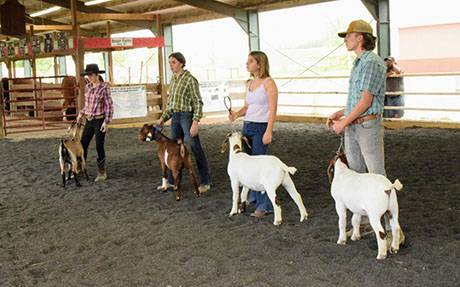
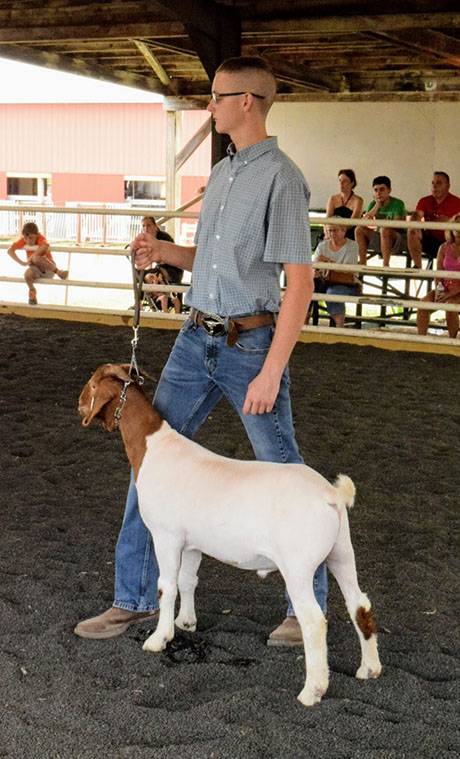
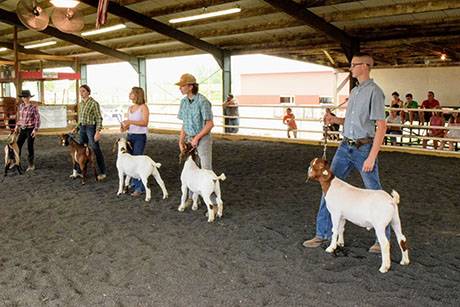


Photos by Debra Reilly




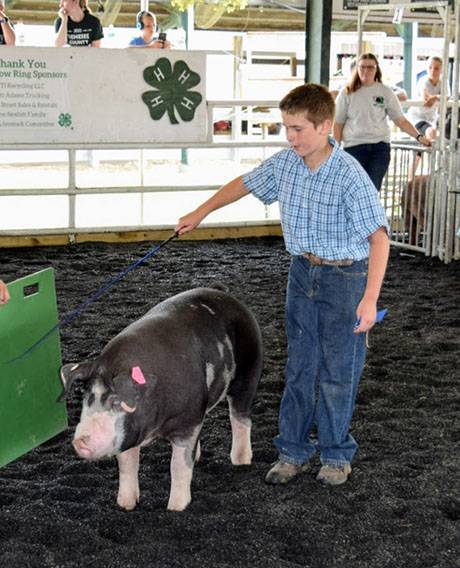
Photos by Debra Reily.



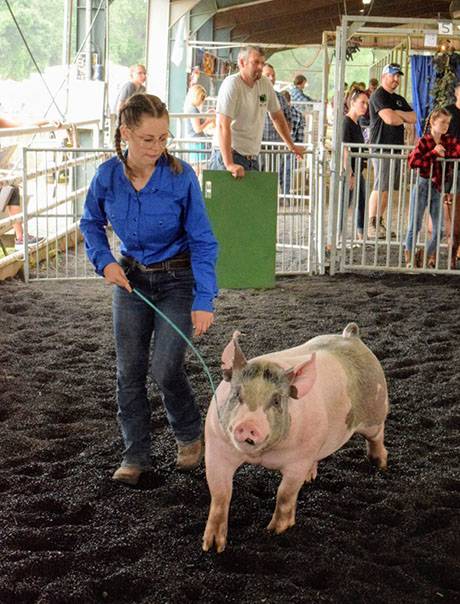
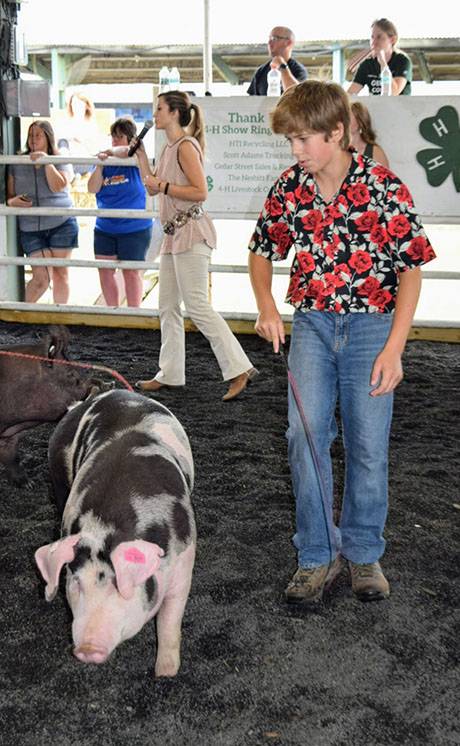

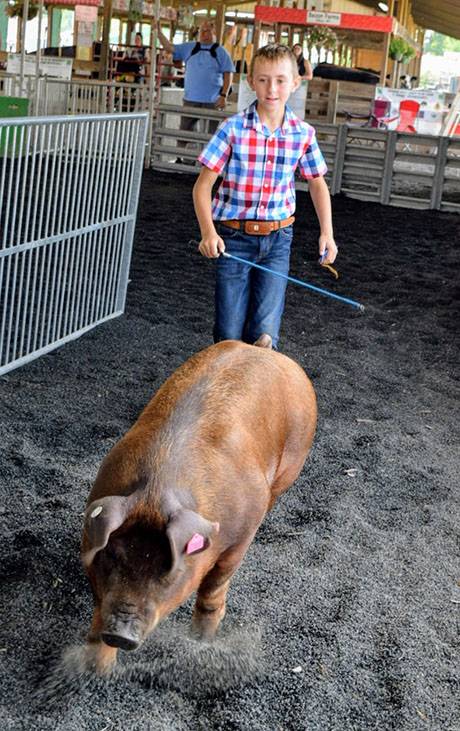
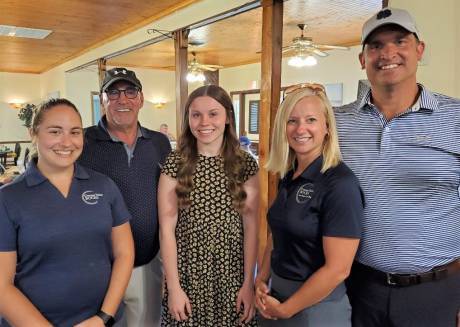
The Gary Hammond Golf Tournament returned to Le Roy Country Club on Monday after having to miss a year due to the COVID-19 pandemic, and the 92 golfers who participated had a chance to see firsthand the fruits of the event that has raised $137,500 for the Holowach Memorial Scholarship Fund over its 32-year history.
That’s because Batavia High School graduate Haylee Thornley, recipient of the first-place $2,000 scholarship in 2021, accepted the invitation to share her academic achievements and goals at a luncheon following the four-person scramble tournament.
The Holowach Memorial Scholarship Fund is named for Charles “Chuck” Holowach, Ed.D., who served as the district superintendent of Livingston-Steuben Wyoming Board of Cooperative Educational Services from March 1982 until his untimely death in December 1988.
The golf tourney is named in honor of Gary Hammond, a retired assistant superintendent for the Genesee Valley Educational Partnership, who served the district for 16 years.
Hammond was among the participants in the event, which now is coordinated by Charles DiPasquale, director of Adult Education, and Leslie Yorks, business and finance manager, both at Genesee Valley BOCES.
Thornley, while thanking the scholarship committee, emphasized “determination and perseverance” in her speech. She stated that she has decided to pursue a doctorate in Physical Therapy at Daemen College in Buffalo after suffering anterior cruciate ligament tears in both knees while playing sports.
“After tearing my ACL twice, resulting in three surgeries and years of physical therapy, I knew it was the profession I wanted to pursue,” she said. “Therapy requires a great deal of mental toughness and resilience that everyone may not be able to find within themselves.”
Graduating in the top 10 percent of her class with a 98.96 average, Thornley said that her enrollment in the Genesee Valley BOCES Health Academy, instructed by Laurie Napoleone, was a key factor in helping her to prepare for the six-year program at Daemen. She also plans to pursue a double minor in Biology and Business.
“Even though this year looked extremely difficult due to COVID, Mrs. Napoleone gave us the knowledge and skills we needed in order to move on to college and begin our health professions’ programs,” she said.
Thornley said the Health Academy offered 21 college credits through health and social sciences courses, and provided hands-on training in Cardiopulmonary Resuscitation (CPR), Automated External Defibrillator (AED), emergency response and clinical teaching.
“Through Health Academy, I was able to shadow physical therapists and work with patients at Jackson Elementary School, Village Physical Therapy and the PT department at United Memorial Medical Center,” she said. “The knowledge and hands-on experience that Health Academy offered ... allowed me to gain a deeper understanding of patient care, treatment and the daily routines that exist in healthcare facilities and communities.”
A Trustee Scholar winner from Daemen College, Thornley is the recipient of numerous scholarships, including those from the Batavia Business & Professional Women’s Club, Lions Club, Kay Dean Memorial and Genesee Region USBC.
Holowach Scholarships are given annually to assist outstanding career and technical education students with college expenses. The selection process includes written application, teacher recommendations, and a personal interview with the selection committee. Selection criteria includes citizenship, financial need, dedication to and achievement in his/her chosen field.
Other Holowach Scholarship recipients this year are as follows:
Batavia CTE Center
Karly Smith, Oakfield-Alabama. Enrolled in the Justice Academy, she plans to study study Psychology at Roberts Wesleyan College and hopes to become a Crisis Intervention Psychologist and work for a law enforcement agency.
Daniel Gersitz, Attica. Enrolled in the Precision Machining Program, he plans to attend Alfred State College in the fall and study Machine Tool Technology.
Mount Morris CTE Center
JoAnna Regatuso, Mount Morris. Enrolled in the Agriculture Production Program, she will attend Morrisville State College to study Equine Science, with a career goal to train horses.
Angelita Clark, Geneseo. Enrolled in the Health Dimensions program, she plans to attend Genesee Community College and study Nursing, aspiring to become a nurse or physician's assistant.
Siobhan Costello, Keshequa. Enrolled in the Agriculture Production Program, she will attend Houghton College in the fall to study Equestrian Studies: Barn Management.
Photo: From left, Leslie Yorks, Genesee Valley BOCES business and finance manager; Charles DiPasquale, Genesee Valley BOCES director of Adult Education; Haylee Thornley; Julie Donlon, Genesee Valley BOCES deputy superintendent; Kevin MacDonald, Genesee Valley BOCES district superintendent. Photo by Mike Pettinella.
A one-vehicle rollover is reported in the eastbound lane of the Thruway in the area of mile marker 384.9 in Le Roy.
Dispatch has received two calls on the accident.
A male is reportedly unconscious.
Mercy Flight is put on ground standby.
Le Roy fire and Le Roy ambulance responding.
UPDATE 11:44 p.m.: A chief reports that the victims are out of the vehicle. Medical is going to evaluate them. Everybody still responding can "take it easy coming in."
UPDATE 11:45 p.m.: A ground contact is being established for Mercy Flight.
UPDATE 11:5 p.m.: The eastbound Thruway is closed for Mercy Flight to land.
UPDATE 12 a.m.: Mercy Flight is informed that the patient to be transported in conscious and alert.
UPDATE 12:03 a.m.: Mercy Flight is on the ground.
UPDATE 12:27 a.m.: Mercy Flight is in route to Strong Memorial Hospital. One lane of the eastbound Thruway is being reopened.
UPDATE 12:34 a.m.: Le Roy is back in service.
Press release:
Today, six United Way chapters officially announced their merger and the creation of a powerful and aligned organization: United Way of Greater Rochester and the Finger Lakes, serving the counties of Genesee, Livingston, Monroe, Ontario, Wayne and Wyoming.
The organization, which altogether raises and distributes more than $30 million annually, now encompasses 5,144 square miles of rural, suburban and urban neighborhoods, and brings together more than 50,000 donors, 1,300 workplaces, 1,000 nonprofit partners, and thousands of volunteers to address the region’s biggest human services challenges.
All current team members across the six counties remain with the organization, bringing a breadth of hands-on experience, in-depth understanding, and increased people power to the expanded footprint.
Jaime Saunders will serve as the merged organization’s president and CEO, with Cicely Strickland-Ruiz as chief operating officer, Jennifer Cathy as chief impact officer, Barbara Pierce as chief development officer, and Laurie Ganon as chief financial officer.
Former regional directors will continue to serve in leadership roles: Kari Buch as associate director of Community Impact, and Tammy Hathaway and Carol Pettis as senior regional development managers.
The six branches have worked together for decades, with Monroe County providing back-office services including financial, IT, marketing and human resources functions for all. The new structure, proven during theorganization’s Spring 2021 campaign season, streamlines the organization’s front-end processes. Its success helped United Way rebound to pre-pandemic levels of funding for its human services partners.
“People and businesses function across local geographic boundaries,” said Jaime Saunders, president and CEO, United Way of Greater Rochester and the Finger Lakes. “Working together more cohesively across the region will make it easier for our business partners and donors to share resources, and our nonprofit partners to get elevated support so they can remain focused on providing services.”
What will not change is United Way’s commitment to local communities.
Dollars raised in an area will stay committed to that area. Donors will also retain the ability to direct their contributions to the causes they feel strongest about. United Way will remain committed to its three core impact areas, providing meaningful Community Impact Fund Impact Grants to its nonprofit partners supporting health, education, and economic mobility, and short-term community impact fund innovation grants for crisis response, synergy and equity.
“The real power of United Way comes from the community,” said Lauren Dixon, board chair of United Way of Greater Rochester and the Finger Lakes, and an Ontario County resident and Monroe County business owner. “As neighbors come together in support of neighbors, United Way becomes a conduit for connecting those resources to the most pressing needs of each community. This merged organization will combine the power of the entire region with an intensely localized focus.”
The combined United Way has created a new Regional Advisory Council and regional cabinets to advise and inform strategies and ensure local communities from across the region are represented in the new organization. In addition, its Board of Directors has added members from the previous United Ways’ leadership, who will work alongside those who already live and work across county boundaries.
In its first public announcement, United Way of Greater Rochester and the Finger Lakes not only confirmed that it will recover to pre-pandemic levels of Community Impact Fund support totaling $12.9 million to 190 programs region-wide, but also announced $125,000 in new, multi-county allocations to nonprofits in Genesee, Livingston, Ontario, Wayne and Wyoming counties.
The funding, $25,000 in each county through the organization’s Project Uplift initiative, has been committed to existing nonprofit partners to support and administer direct, discretionary interventions for community members experiencing barriers to well-being and economic stability. It is the first of many multi-county funding initiatives United Way anticipates rolling out across the region in the coming years.
In an effort to hear and learn from the community, over the coming months, United Way’s Community Impact team will conduct a listening tour with human service agencies across the six counties. The effort will be focused on aligning approaches and systems to maximize outcomes without creating additional burden for service providers.
“We will maintain the consistency of funding as we coordinate processes and procedures on our end,” said Jennifer Cathy, United Way’s chief impact officer. “We will take the next few years to synchronize six distinct grant cycles and application timelines into one, all with an eye to improving the experience for – and supporting the outcomes of – our partner agencies.”
Workplaces and donors will notice simplification of some processes immediately, but otherwise United Way’sAnnual Campaign will remain unchanged. It will kick off its region-wide campaign in January, and year-round efforts will continue to help the organization raise needed funds to respond to community needs.
“We remain focused on providing local workplaces, donors and volunteers with easy and meaningful ways tomake a big difference across our region,” said Barbara Pierce, United Way’s chief development officer.
“In addition to maintaining our current channels for giving, we will also continue to innovate and create new funds like our recently introduced Equity Fund, so donors can support the causes that are most important to them.”
United Way of Greater Rochester and the Finger Lakes has launched its new website in conjunction with the announcement, and more information can be found at http://www.UnitedWayROCFLX.org.
Reminder: There will be a morningtime Open House in Genesee County to mark the milestones this Wednesday, July 28, at GO ART!, located inside the Seymour Building at 201 E. Main St. in Downtown Batavia. Time is 8 to 9:30 a.m. A brief presentation will be made at 8:30 a.m.

There is concern among wildlife experts throughout the Northeast about a mysterious disease that killing songbirds and while there's no confirmation that the unknown pathogen has reached Genesee County it has been reported in the Southern Tier.
Close enough that bird lovers might want to exercise caution, which could include taking down birdfeeders.
Birdfeeders and birdbaths are places that encourage songbirds to congregate, which could help spread the disease.
The Department of Environmental Conservation is asking state residents to report any unusual bird deaths.
The Audobon Society reported in early July:
In April, scores of birds in the greater Washington, D.C., area began displaying strange symptoms. Their eyes were swollen and crusty; some became disoriented, started twitching, and died.
“They were having a hard time seeing,” says Nicole Nemeth of the Southeastern Cooperative Wildlife Disease Study. “Sometimes they don’t seem to be able to use their hind legs.”
By the end of May, similar reports were rolling in from across Maryland, West Virginia, and Virginia. By June, sick birds had turned up in Delaware, New Jersey, Ohio, Tennessee, Florida, Indiana, and Pennsylvania according to the U.S. Geological Survey Wildlife Health Information Sharing Partnership.
The Batavian checked with the Cornell Cooperative Extension of Genesee County and the DEC, and while neither agency reported local incidents, the DEC did issue the following statement.
The New York State Department of Environmental Conservation (DEC) has received social media reports about bird deaths in Western New York, as well as the reports of bird deaths documented in other Eastern states.
DEC wildlife personnel have received about two dozen calls from the public reporting a dead bird, usually in their yard. There are typically many dead fledgling birds on the landscape during this time of year; normal nestling/fledgling mortality rates are high with only 25 to 50 percent of songbirds surviving their first year.
Because of the documented issues involving mass bird deaths -- mostly of fledglings of starlings, grackles, blue jays, and robins with neurologic signs and/or eye lesions -- in the mid-Atlantic states, Pennsylvania, and Ohio, DEC wildlife staff are on alert to look out for dead birds. However, there are no confirmed links between the local bird deaths and what's happening in other states.
The help of the public is appreciated to determine the nature of these unusual mortality events, which may affect the eyes and neurological system of birds. If saving a bird carcass for DEC, gloves should be used to pick up the bird. The bird should be placed in a plastic baggie, kept on ice and in the shade.
Anyone handling birds, even with gloved hands, should thoroughly wash their hands afterward. Only freshly deceased birds should be saved, due to how quickly carcasses degrade in the heat. Those collecting birds should also provide DEC with their name, address and phone number. Contact the wildlife staff at the nearest DEC regional office (https://www.dec.ny.gov/about/558.html)
DEC is also working with avian experts from Cornell Wildlife Health Lab. Further information will be provided as it becomes available.

Press release:
The Batavia Police Department is looking for assistance identifying the pictured male in relation to a residential burglary on East Main Street, where TVs among other property was stolen. The vehicle he was operating had a spare tire on the rear passenger side and a taped-up quarter window on the rear driver side.
Anyone with information is asked to contact investigating Officer Girvin or the City of Batavia Police Department at (585) 345-6350.

Press release:
If you are interested in becoming a Master Gardener Volunteer, Cornell Cooperative Extension of Genesee County will be offering Master Gardener training this fall. Classes will be held on Tuesday evenings from 6 to 9 p.m., starting Sept. 7 and running through Nov. 16.
There will also be a full day of classes on Saturday, Oct. 23. We are currently planning to hold classes in-person at the CCE Genesee office, 420 E. Main St., Batavia.
Each class will focus on a different horticulture topic throughout the training. Some of the topics to be covered include: botany, diagnosing plant diseases, entomology, soils & fertilizers, lawn care, herbs, vegetable gardening, woody plants, pruning, fruits, perennials, annuals, integrated pest management and organic gardening.
By attending the Master Gardener training, you will become a more knowledgeable gardener.
Anyone interested in learning more about gardening may attend the course. Preregistration by Aug. 24 is required. Class size will be limited. The fee for this training is $225 per person. The Cornell Master Gardener manual will be provided electronically.
If you have a passion for volunteering and gardening, this training is the first step to becoming a Genesee County Master Gardener volunteer.
Genesee County residents who graduate from the program are then eligible to apply to become a volunteer. (Other county residents should contact their local Master Gardener program.)
A Master Gardener volunteer should have a willingness to give back to the community and help put into practice what they learned at training. Enthusiasm for sharing their gardening skills and knowledge is a must.
For an application or to register contact Jan Beglinger at (585) 343-3040, ext. 132, or stop by the Extension office at 420 E. Main St. in Batavia.
Press release from AAA:
Today’s national average price for a gallon of gasoline is $3.16, down 1 cent in the past week. One year ago, the price was $2.18. The New York State average is $3.19 – down 1 cent from last week. A year ago, the NYS average was $2.27.
AAA Western and Central New York (AAA WCNY) reports the following averages:
- Batavia -- $3.17 (no change since last week)
- Buffalo -- $3.13 (up 1 cent since last week)
- Ithaca -- $3.17 (no change since last week)
- Rochester -- $3.16 (no change since last week)
- Rome -- $3.24 (down 1 cent since last week)
- Syracuse -- $3.16 (no change since last week)
- Watertown -- $3.21 (down 1 cent since last week)
The national average price for gasoline dropped from $3.17 a week ago to $3.156 (rounded up to $3.16) today. The Energy Information Administration (EIA) reports that gas demand continues to increase, but only slightly.
Additionally, total domestic gas stocks saw a slight decline. These trends have helped to stabilize price increases; however, crude oil prices have fluctuated in the past week over market concerns regarding the COVID-19 delta variant, and if they stay less expensive, it could mean cheaper prices ahead.
Though, AAA expects the national average to remain above $3 per gallon throughout the summer.
From GasBuddy:
"With oil prices struggling under the weight of a rise in new COVID-19 cases thanks to the Delta variant and OPEC's increase in oil production, average gas prices in most states finally drifted lower," said Patrick De Haan, head of petroleum analysis for GasBuddy.
"However, we aren't yet in the clear -- U.S. gasoline demand last week surged to a new 2021 high, besting the week prior to the July 4 holiday. This shows that motorists aren't slowing their appetite for hitting the road just yet, and that could further boost prices should demand remain hot.
For now, motorists should enjoy the perhaps brief respite at the pump and buckle up for what might be a bumpy finish to summer."
A two-car accident with injuries is reported in the westbound lane in the area of mile marker 396.6.
A first responder reports one car is in the median and the other is on the shoulder.
Town of Batavia fire and Mercy EMS dispatched.
UPDATE 6:34 p.m.: A second ambulance is requested nonemergency.
Alianna Baris, a 2021 graduate of Le Roy High School, is the 2021 Genesee County Fair Queen.
Tomorrow is Veteran's Day at the fair. Here's the schedule:
7 AM—4-H Livestock may arrive (Beef steers, dairy steers, sheep, goats, hogs)
10 AM – Exhibition Halls & Buildings Open
NOON—4-H Market Auction Final Weigh In (steers, lambs, goats, hogs)
1 PM—4-H Livestock Skill-a-thon (Main Show Ring)
4 PM— 4-H Market Auction Goat Show (Main Show Ring)
6 PM—4-H Livestock Judging Contest
10 PM – Exhibit Halls & Buildings Close


Alianna Baris and 2019 Fair Queen Taylor Schofield.

Jasmine Turner, who won Dutchess.

Gabriella Zocco, who won Princess.




Zoe Castro.

Alivia Kennedy, Little Miss winner.


Brook Pagels, winner Miss contest.




Here are some shots from last night's Genesee County Speedway races as part of this week of the Genesee County Fair. There will be more races during the fair this coming Saturday.







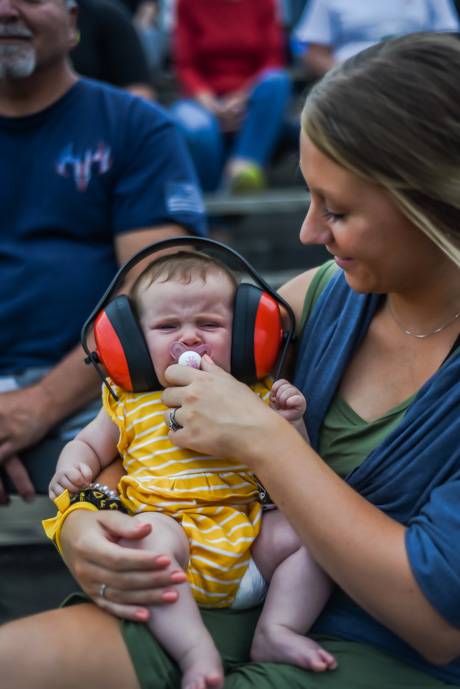



Photos by Kristin Smith.


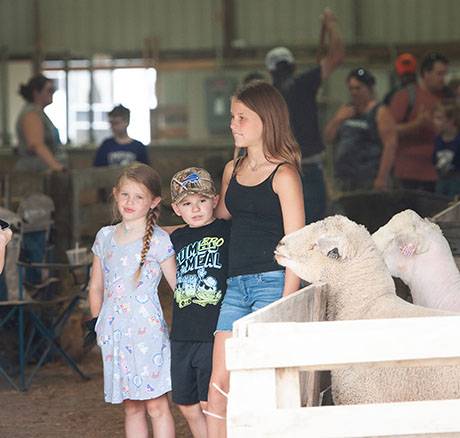
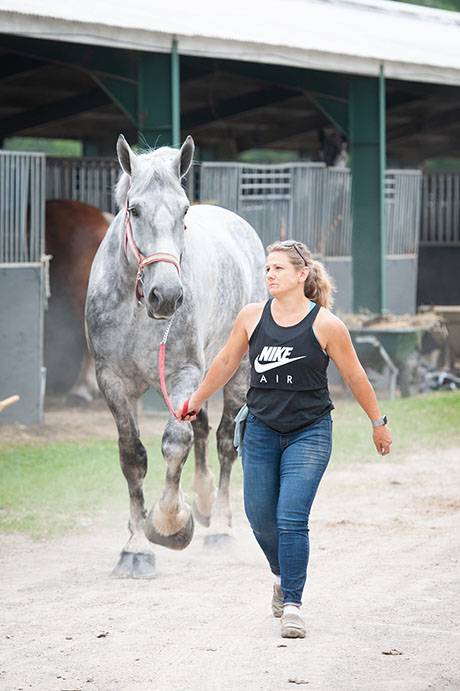
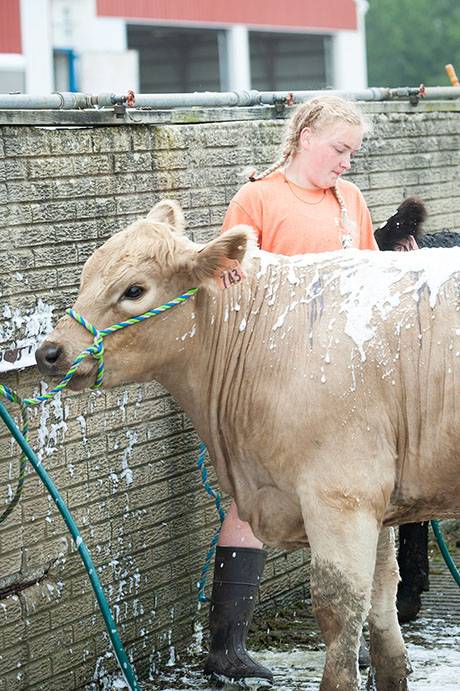

Press release:
Labor shortages across nearly all industries are making headlines, but this is a topic community colleges have tackled for years. With increased urgency, local institutions prioritize course and program offerings to meet workforce demands.
The results build strong communities and make some great success stories.
Ryan Vogt, who thought he hated math in high school, said the personal attention his Finger Lakes Community College math professor gave him changed his whole outlook on the subject. Now, Ryan has a doctorate in mathematics and works at a U.S. Department of Energy lab.
Like many scholarship recipients at Genesee Community College, Claire Gardner was inspired and determined when she entered the Nursing Program. Upon graduation in 2019, she was prepared to be effective on the frontlines battling COVID-19, transferred her associate degree to SUNY Brockport to continue her education and landed her dream job as a NICU nurse at Rochester General Hospital.
When his first year at a university fell short of his expectations, Evan Baldwin shifted his educational path. He knew Monroe Community College's precision machining program was the right fit for him. Evan was hired as a full-time CNC operator a month before earning his associate degree in May.
Though each of their experiences is unique, they represent the stories of thousands of students who start and complete their studies at community colleges every year. Thousands more inspiring stories of how community colleges have transformed students' lives are waiting to unfold.
Dreams -- not debt -- are why individuals go to college. Like Ryan, Claire and Evan, New Yorkers go to college to achieve their goals, whether earning an associate degree for an in-demand job, learning new skills to change careers, or pursuing a bachelor's degree, master's degree, or Ph.D.
That's exactly what the State University of New York's 30 community colleges, including FLCC, GCC and MCC in the Western New York region, are designed for.
At a time when student loan debt is rising across the country, nearly two-thirds of SUNY community college associate degree graduates have zero student loan debt. That means they leave campus with no student debt, but have an accredited SUNY degree, and a pathway to a career or an advanced degree.
Simply put, community college is the most affordable way to earn a college degree, no matter how far they want to go.
New York State is rebounding and rebuilding after the turbulence of the COVID-19 pandemic. This means job opportunities in many industries will return to full vitality and new, future-looking jobs will be created.
With deep ties to their communities and regions, SUNY community colleges can help residents seize this moment -- and make education work around a busy life, with flexible on-campus and online associate degree programs for full-time or part-time students.
Applications can be completed online, are easier than ever and free at FLCC, GCC and MCC, like at most community colleges. Knowledgeable faculty and staff are available to guide students through the process.
Anyone interested is encouraged to visit flcc.edu, genesee.edu, and monroecc.edu for information on special enrollment opportunities.

Batavia Downs summer concert series brought Slaughter last evening in a recent change from a couple weeks ago to replace Skid Row due to a cancellation.
The heavy rock band has two original members since its inception, lead singer Mark Slaughter and Dana Strum bass guitar, backing vocals. The band played some of its greatest hits, "Fly to the Angels," "Up All Night" and "Spend My Life."
Photos by Steve Ognibene.





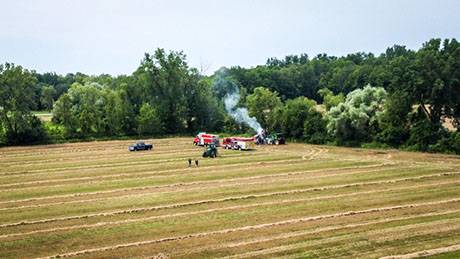
For the second day in a row, Bethany fire responded to a field fire, albeit a smaller one this time.
Today's fire call was at 11:44 a.m. and involved a bailer catching fire at the back of his field off of Bethany Center Road.
Also responding were the Alexander, Wyoming, and Pavilion fire departments.
Photos by Glenn Adams.
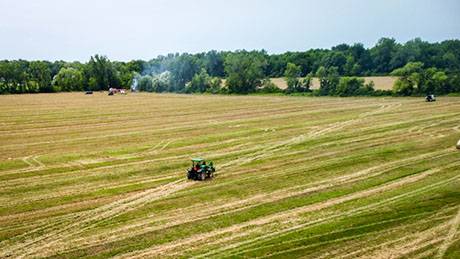
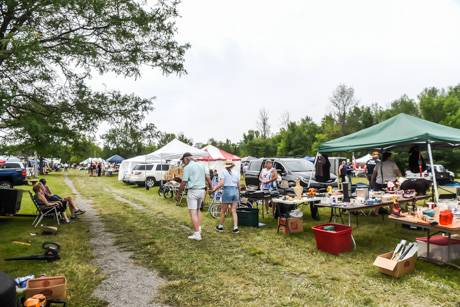
There's a flea market today and tomorrow at the Alexander Steam Show grounds in Alexander. The market runs from 9 a.m. to 5 p.m.









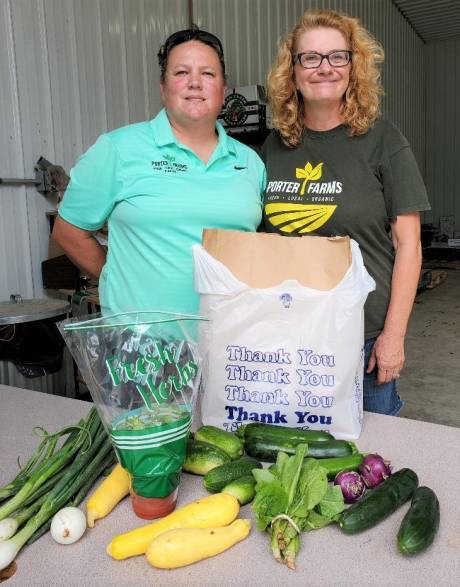
The day-to-day operations manager at Porter Farms in the Town of Elba is determined to make all of Western New York aware of the substantial benefits of local farm markets and Community Supported Agriculture programs.
“I think that we all know that after COVID, we can’t rely on big box stores for everything that we need,” Kathy Riggs-Allen, a longtime Elba resident said today at the retail store and CSA processing site at 4911 Edgerton Road.
“You’ve got something like this right in your backyard. Whether it’s us, or Torrey’s Farm Market on (Route) 98 and Underhill's in Elba or Harrington’s in Batavia. You have these awesome things right in our area.”
Today was CSA pickup day at Porter Farms, which, for 25 years, has forged relationships with consumers who support the farm by purchasing memberships and, in return, receiving a bag of produce each week during the 22-week or so growing season.
According to the United States Department of Agriculture’s National Agriculture Library, CSA consists of a community of individuals who pledge support to a farm operation so that the farmland becomes, either legally or spiritually, the community's farm -- with the growers and consumers providing mutual support and sharing the risks and benefits of food production.
Per the USDA, through these memberships the farmer receives advance working capital, gains financial security, earns better crop prices, and benefits from the direct marketing plan.
Riggs-Allen reported that membership in the CSA at Porter Farms currently is at approximately 450 members, with around 250 from the Buffalo area, 100 from the Rochester area and another 100 local residents.
She said that a full share costs around $20 a week while a half share (a little more than half of what is in the bag for a full share) costs around $15 a week, with memberships paid in advance.
All of the produce in the bag is organic, grown on the more than 500 acres owned by the Porter family.
“Every Saturday morning, we bag and retrieve produce for our members,” Riggs-Allen said. “For the Buffalo area members, we have divided them into about 17 different groups – with letters on the wall that indicate the (street or town) location. If there’s 13 people in your group, you take turns and you can drive out here – usually twice a season – and pick up the bags for everyone in that group. From there, you would take it to a pickup site where everyone in that group would come to that pickup site to get their bag.”
The Rochester area members are divided into five pickup sites, she said.
“For them, we load a truck first thing every Saturday morning, and the truck drops off the produce at those five sites, and the people in those groups go to their sites to pick up,” she explained. “Anybody can come to the farm and pick their share up. If you want to come every week, that’s great. If you don’t, you can be assigned to a group.”
Riggs-Allen said the farm is looking to grow the CSA, which at one time had more than 1,000 members.
She said samples of the vegetables that are being picked that particular week are available at the retail store.
This week’s bag contains potted oregano, white onions, baby romaine lettuce, cucumbers, pickling cucumbers, yellow squash, zucchini and purple kohlrabi (the name kohlrabi is German for “cabbage turnip”).
Ruth Miller, of West Barre, part of a family of retired dairy farmers, said she has been a CSA member for five years and appreciates “the food and the fellowship.”
“(I support) the idea of group, community farming. We’re farmers as well, so we understand the business and kudos to these people who are doing this,” she said, adding that the fact that the vegetables are organic is important.
“There’s a process that farms have to go through to be certified organic – and it is quite a process. No use of chemicals or contaminated seeds. No herbicides or pesticides,” she noted.
Riggs-Allen said another key factor in the organic process for vegetables is crop rotation.
“We can’t fertilize and put nutrients back into the soil with fertilizers so we have to use additional crops that put those nutrients back in,” she advised. “Crops such as beans and peas take a lot of nitrates out of the ground, so wherever you plant those one year, you want to be put a cover crop that’s going to repopulate those nitrates into the ground.”
Elba resident Bill Kauffman, a 20-year CSA member, said the program has given him a new appreciation of produce.
“I was somewhat vegetable averse,” he said, but over time he indicated that he has grown to love zucchini.
“I’m the world’s worst baker, but last night I made zucchini cake – and it was edible. This has expanded my vegetable horizons, but there still are certain ‘no go’ areas like kohlrabi,” he joked.
Kauffman added that the Porters “are a wonderful family and they have created something beautiful and enduring here; I’m happy to be a little part of it.”
The family also owns a certified organic orchard of Asian pears and apples on Route 262 and rents additional farmland in the area.
Vegetables grown include tomatoes, peppers, eggplant, cucumber, Swiss chard, broccoli, cauliflower, varieties of lettuce, onion, leek, winter squash, beets, peas and other greens.
At the recently opened retail store, the Porters sell all-natural Angus ground beef and lamb, produced from the livestock raised on their farm, as well as herbs, local honey and syrup, baked goods and other items.
The farm was started in 1956 by the late Carlton “Jack” Porter Jr. and carried on by his sons, Steve and Mike, who also have passed away.
Currently, Debbie Porter owns the farm, with Katie Porter-Metzler and Emily Porter-Swarner as key contributors to the operation and CSA program.
The retail store is open from 9 a.m. to 3 p.m. on Wednesdays and Saturdays. An open house, featuring activities for families, is scheduled for 11 a.m. to 1 p.m. on Aug. 7.



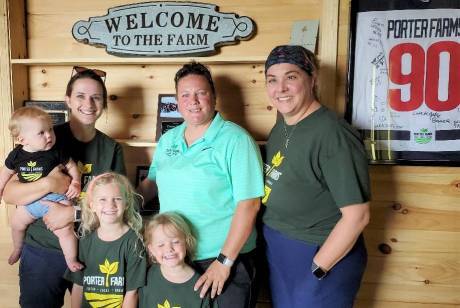
Photo at top: Kathy Riggs-Allen and Emily Porter-Swarner display the contents of this week's CSA bag of produce at Porter Farms in Elba; photos at bottom: Porter Farms location on Edgerton Road; picture at the retail store of founder Jack Porter with children, Mike and Beatrice "Bess"; hats, T-shirts and tote bags for sale at the store; Katie Porter-Metzler with children Georgia, Cora and Suzanna; Riggs-Allen, and Debbie Porter. Photos by Mike Pettinella.
Copyright © 2008-2022 The Batavian. All Rights Reserved. Privacy Policy | Terms of Service